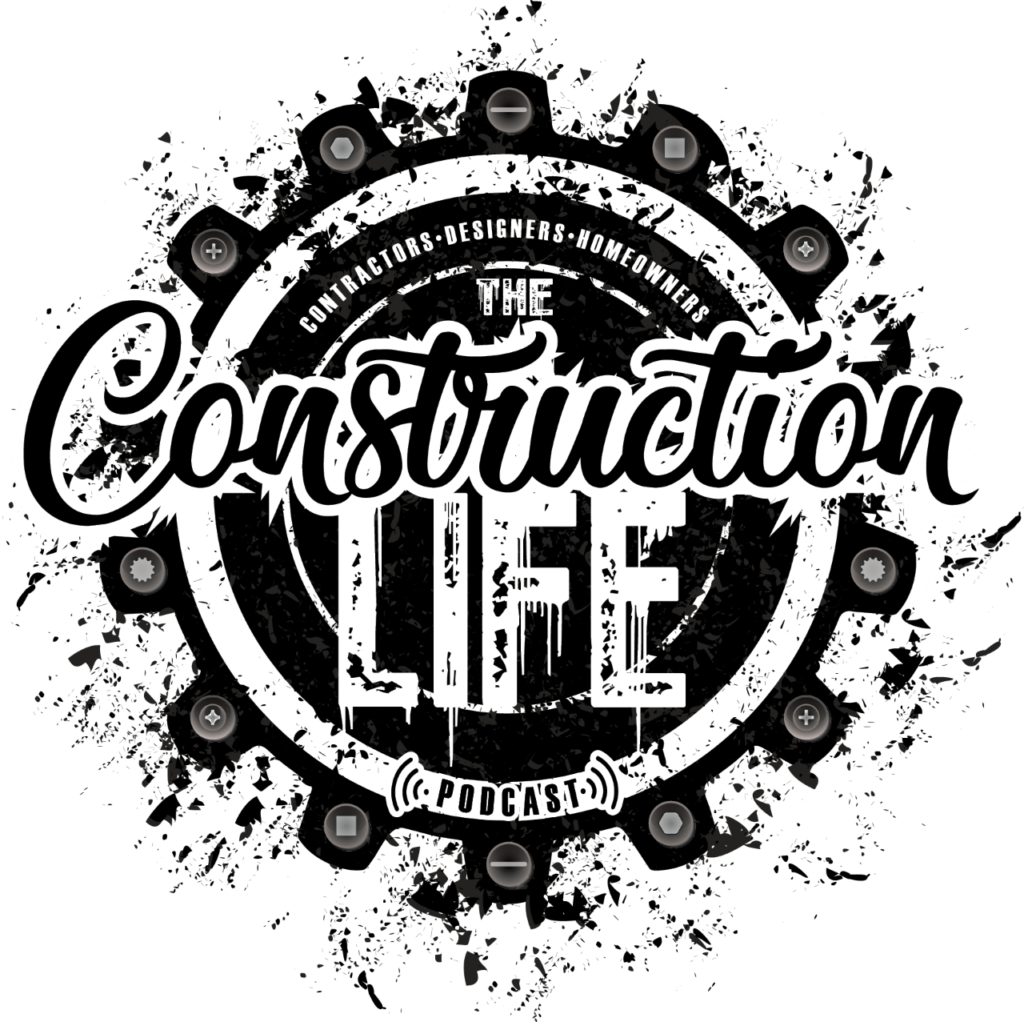EP# 3 Contractors Negotiation – Know Your Worth!
Show Notes
When it comes to construction, why does everyone think they know better than those who work in this field on the daily basis. Your family, friends, clients, and almost everyone around you think they know better and will insinuate their opinion. In episode #3 of “The Construction Life” we discussed the most unnoticed dilemma, that is negotiation with contractors, how contractors must justify their worth for the price, and also why even the final payment is an issue and has to be negotiated? If you are in the same construction boat, this podcast is for you…
Let’s go through some vital problems and solutions identified to help you , the tradesperson out in your future negotiations.
Negotiation in the Beginning – Not in the End
Well, clients after watching social media posts, Pinterest, Houzz and TV Reno shows think they know about construction more than you, the professional tradesperson. Make sure to make all the terms clear and written in the agreement. The client makes sure to keep themselves secure in the contract; you make sure to do so too! The client comes up with an estimate, you have to correct them and educate them before you both come to a signed contract, there is always a correction based on the clients R&D of the above-mentioned misinformed resources, expect it, embrace it, expense it. One more note, any extras, those are paid in full at the time the clients requesting it, don’t move forward working away on the scope until that extra is paid.
Tradespeoples Worst Experience
Clients usually want you to do the hard work and settle for less price. Never ever do that, since you’re here…why don’t you take care of these other little things and not bill me for them. We share a story about a kitchen renovation and the contract was for $11,000.00 and change. Everything was perfect during the project until the counter top arrived, there was an error in the measuring and one piece needed to be re cut, no extra expense to the client and the new piece would still be installed on schedule, but the client managed to find a teeny tiny rough patch and thought that the project is worth less than 11K and after a few weeks of tension as we wrapped up, the clients felt the 11K was too mich and insisted on only paying $4000.00.
There were three major issues raised.
- Towards the end of the project, the client’s girlfriend visited and praised the good work while the person in charge of that work stood right there, inside the kitchen, the client didn’t even bother to introduce the General Contractor to her friend. He felt insulted, a few words of appreciation cost nothing.
- Final payment became a problem, he fought for it over a number of weeks after the job was completed to the client’s satisfaction and he ended up losing $912.00 during the negotiation process. Well, everyone told him it’s better than the loss of $7000.00 (because the client wanted to pay $4000) and as people lose thousands of dollars in this industry all the time. But the point is why even $912? Why do you need to fight for the final payment? This money belongs to the team that has worked hard for you, and for the contractor who makes his living by working for you. Why should someone even lose a dime?
- Humans make mistakes, contractors are humans too, so are clients, if they are willing to fix their mistakes, the mistake here was corrected at no cost to the client and added no extra time to the project, why can’t the client give the tradespeople a chance and pay them what they deserve?
Contract and Final Payment
Another issue raised was how people conveniently ask for discounts/cuts after the work is done…Like if the project was $70,300, the client will say, just take $70,000. Common it’s just 300 bucks? Well, you have to explain to the client that it’s the $300 I owe my team. Will someone ask for a discount on electric bills? Restaurant bills? No, then why do people expect us to give up even the $1 that we owe and that was promised to us. Mike says even the client insists it is just $300, he never leaves the money he was promised to get and takes the full amount.
So, if the contractor is following the contract, the terms, guarantees, warranties, why are you trying to change the contract price in the end? why are they changing at the very end? why can’t we just stay on track? Why do you have a problem and you still move forward?
So, make a contract that protects you as well. The client is happy with the contract when they feel like they have more of an edge than the contractors. But do you know what they forget? This is a contractor’s full-time job. And if they don’t get paid from them, how will they survive, they have a livelihood, just like everybody else, they have to pay people, they have to pay their bills. Even if the client doesn’t, you have to remember it before signing any contract.
Respect Yourself- Stand up for your skills and brand
Realize how you are not just a contractor; you must establish yourself as a brand and then stand up for your brand. Your business is important, money is also important, but the people you are doing business with are more important. People will view your business/brand on the basis of how you portray it. Don’t let people take advantage of you, respect yourself, and when people push against you and keep negotiating, make yourself stronger and politely push back with your skills and brand image.
Dealing with clients who ask for discounts in thousands of dollars definitely don’t know your worth, and it’s better to stay away from them and the future headache you will get from such clients. Don’t be desperate when it comes to negotiations, prove your worth and there are plenty of clients out there who would want to work with you for your brand.
Absorbing the Problems for Extra Money
Manny beautifully explains how a good-paying project is worth all your efforts. How you will absorb all the client’s and project’s problems. The client should realize that the contractor won’t bring any headaches and thus are worth the extra money, most of the time being the highest estimate. They will try to negotiate and they’re expecting free quotes, don’t give them that! Don’t just earn money, earn respect, earn professionalism, and establish your brand, do your best, and money won’t be a problem anymore. Clients will know you are worth the extra money!
Take legal action
When it comes to issues with final payments. There’s always the legal way. It’s expensive, you will have to spend money, you’ll lose money in form of a legal fee, and the stress associated but it’s your right and you should not give up your right to anyone that should pay you for services provided. If you take a legal route, understand your options, understand how much stress you will carry, how will this legal recourse affect current and upcoming projects? In the end, lawyers are the only ones that make money in any dispute, both sides loose and it’s just different levels of losing. You might lose the exact money, the client is not willing to pay you, but you have an opportunity to set an example, you are clearing the way for other clients, clients that will think twice while holding back the final payment. You have to make a difference and work for the pride and professionalism of this industry.
Dive into their world
Don’t expect clients to know everything, educate them, tell them this is the figure, this will cost you $25,000.00 for example. They can save and come back to you later. Also, you have to put yourself in their shoes, you have to dive into their world. You have to recreate the world they want to create, how much can they save, how much can they spend on appliances and things like this. You have to make conversations with blue-collared people to find out how they view their dream home and help them make it at the price that is best for you and for them as well.
Negotiating Time not Money
Finally, while negotiating always remember that you are negotiating time, not money. It’s about days, weeks, months you will spend working for the client. It is the time your team will be spending on the project. So, make sure you don’t drop your prices and your values in the name of negotiation. Never lower the amount of your estimate, always remove the scope of work, that is how clients can reduce the estimate.




















